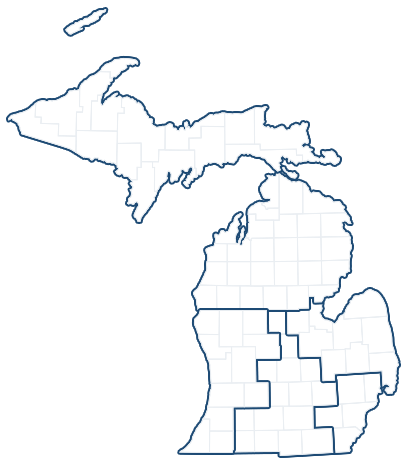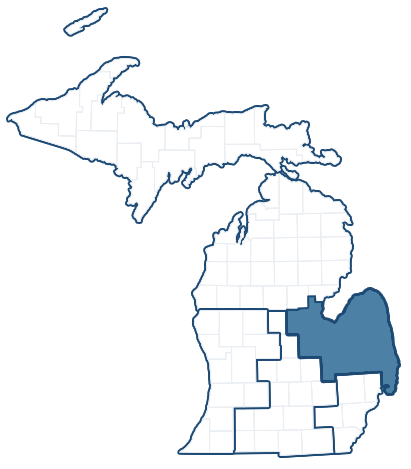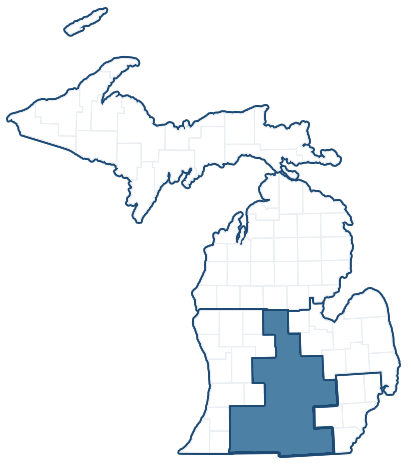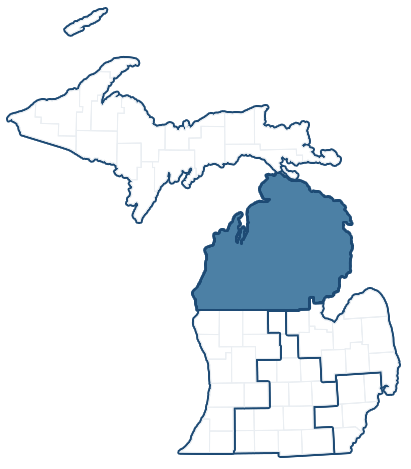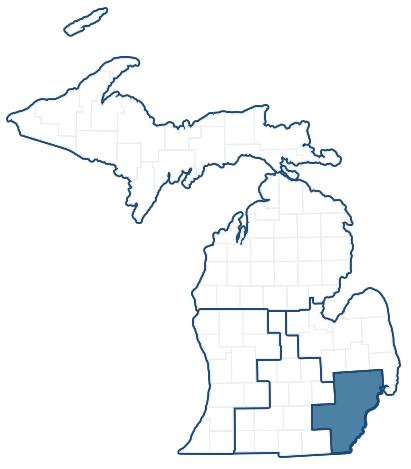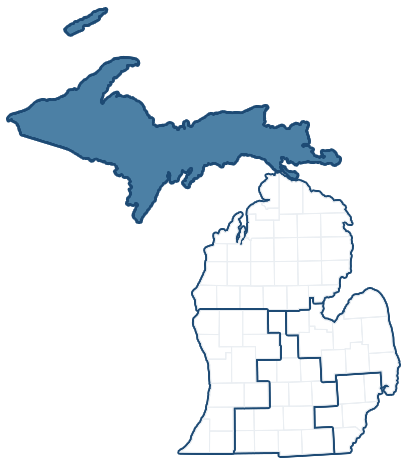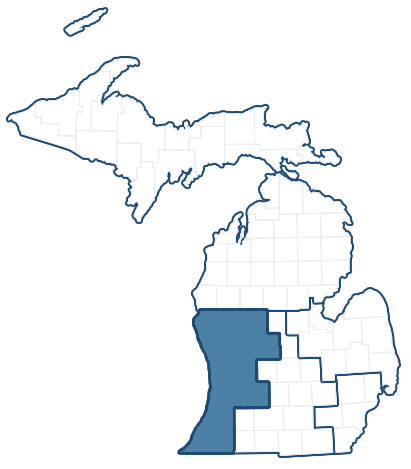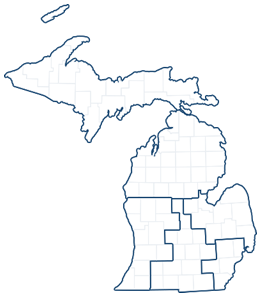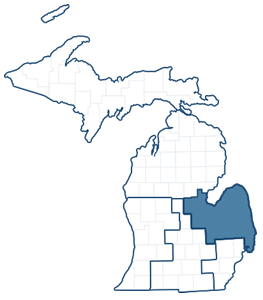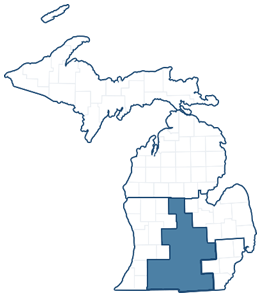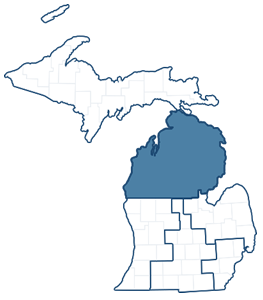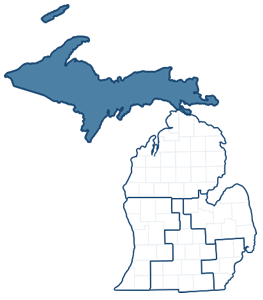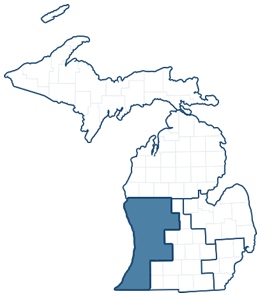Stabenow, Peters Raise Alarm over Delay in Finalizing Critical Asian Carp Study
Senators express serious concerns over the timeline for implementing permanent measures to combat Asian carp
Monday, November 27, 2017U.S. Senators Debbie Stabenow, co-Chair of the Senate Great Lakes Task Force, and Gary Peters, member of the Senate Great Lakes Task Force, sent a letter to the acting Assistant Secretary of the Army for Civil Works raising alarm over the delay in finalizing the Brandon Road Study, a critical action-plan for keeping Asian carp from reaching the Great Lakes. Upon news of a second extension of the comment period for a new public meeting in New Orleans, the Senators expressed serious concern once again over the Army Corps’ timeline for implementing permanent measures to combat Asian carp.
“We appreciate the efforts of the U.S. Army Corps of Engineers (USACE) to develop and assess the alternatives presented in the Brandon Road Study, but we would reiterate the same comments we have heard from Michigan residents: this process is taking far too long,” wrote the Senators. “Current estimates indicate it will take as long as eight years to have a barrier installed at the Brandon Road Lock and Dam. This timeframe is simply unacceptable with Asian carp having been discovered closer and closer to the Great Lakes, including an adult Asian carp captured above the electric barrier, just 9 miles from Lake Michigan.”
“Despite the need for timely action, the USACE’s recent decision to provide a second extension of the comment period for the Brandon Road Study was very disappointing,” the Senators continued. “It is our understanding that the USACE granted another extension to accommodate a public meeting in New Orleans. If the USACE concluded this meeting was necessary, why was it not scheduled after the first extension of the comment period?”
A PDF of the letter is attached to this release and the full text may be found below.
Ryan A. Fisher
Acting Assistant Secretary of the U.S. Army (Civil Works)
108 Army Pentagon
Washington, DC 20310-0101
Dear Acting Assistant Secretary Fisher,
The Brandon Road Draft Integrated Feasibility Study and Environmental Impact Statement (Brandon Road Study) is a critical step towards protecting the Great Lakes from Asian carp. Although we believe a physical separation of the basins is the most assured path to stopping Asian carp, the alternatives presented in the Brandon Road Study are a step in the right direction. However, time is of the essence to put in place a permanent barrier and robust controls that stop Asian carp from reaching the Great Lakes.
We appreciate the efforts of the U.S. Army Corps of Engineers (USACE) to develop and assess the alternatives presented in the Brandon Road Study, but we would reiterate the same comments we have heard from Michigan residents: this process is taking far too long. Current estimates indicate it will take as long as eight years to have a barrier installed at the Brandon Road Lock and Dam. This timeframe is simply unacceptable with Asian carp having been discovered closer and closer to the Great Lakes, including an adult Asian carp captured above the electric barrier, just 9 miles from Lake Michigan.
Despite the need for timely action, the USACE’s recent decision to provide a second extension of the comment period for the Brandon Road Study was very disappointing. It is our understanding that the USACE granted another extension to accommodate a public meeting in New Orleans. If the USACE concluded this meeting was necessary, why was it not scheduled after the first extension of the comment period? Thank you for providing an answer to this question and informing us as to when the USACE first received a request for a public meeting in New Orleans.
The USACE has stated that the additional time for public comments will not delay the completion of a Chief’s Report in August 2019. While we appreciate this goal, the USACE should finish the Report by January 2019. This is the original deadline that we can only assume was pushed back to August as result of the Administration’s decision to delay the Study’s release by several months.
Aside from the timeframe for completing the Chief’s Report and implementing permanent structural solutions, we ask that the USACE allow for interim measures such as deploying complex noise at Brandon Road as soon as possible. In addition, we ask the USACE to utilize existing authorities provided by Congress to institute navigation protocols that would reduce the risk of Asian carp being inadvertently carried or pushed through Lock and Dams in the Illinois River and the electric barrier outside of Chicago. It is our understanding that this action would be perhaps the most effective way in the near term to reduce the likelihood of Asian carp reaching the Great Lakes.
As for the draft Brandon Road Study, we are concerned that while the experts appeared significantly divided in their opinions (Appendix C), the USACE presented the information (Figure ES-6) in an overly simplistic manner that could lead to misunderstandings about the risks or benefits associated with each alternative solution to addressing Asian carp. To be clear, the establishment of bighead or silver carp would be disastrous for the Great Lakes and our outdoor economy, and there is no acceptable level of risk for that occurring.
We also have concerns about some of the variables utilized in the economic study (Sections 5.4-5.7). In particular, it appears that the USACE looked exclusively at three industries on Lake Erie to conclude that the establishment of Asian carp in seven out of nine scenarios would result in a “negligible to positive” result for the local commercial, recreational, and charter fishing industries. We fail to see how the establishment of these species would result in a positive impact on economies and industries reliant on strong sport fish populations, particularly when Section 5.3.3 explains that peer reviewed modeling concludes that “Asian carp have the potential to become a dominant species in the Great Lakes and tributaries.” We would ask that the USACE reassess how this economic study was carried out and review the value it adds to assessing the benefits and costs of each alternative. The USACE should not ignore the impact of Asian carp on several important industries – including recreation and tourism – or the economic impacts to the other Great Lakes besides Lake Erie. We believe a more comprehensive approach to assessing the basin wide impacts of Asian carp establishment on our Great Lakes economy is necessary.
The Great Lakes are a bedrock of our economy, both regionally and nationally, and we cannot risk harming them by allowing Asian carp to invade. Thank you for responding to the specific questions we raise in this letter and for including this letter in the official record of public comments.
Next Article Previous Article



